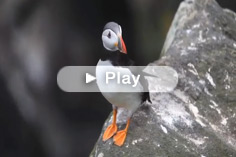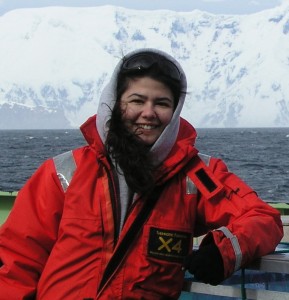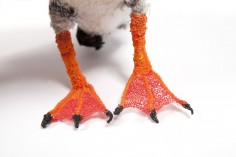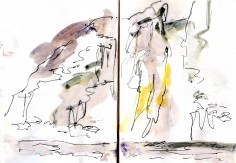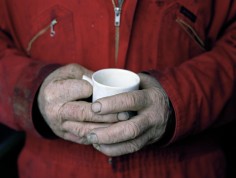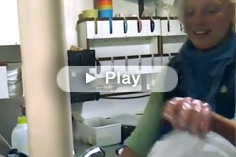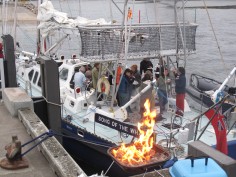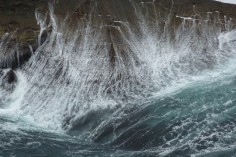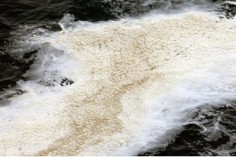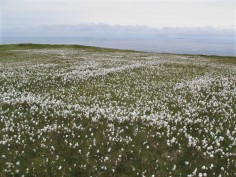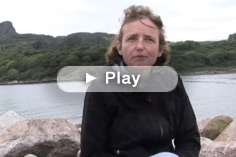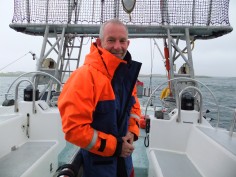Maria Salta
Joins the expedition for week 4
Maria Salta completed her BSc and MRes in biological oceanography at the National Oceanography Centre (Southampton, UK). She investigated the ecological importance of coral reefs in supporting fish populations and species richness in one of the most bio-diverse regions in the world – the Wakatobi Marine National Park, Indonesia 2006. In 2007, Maria participated along Dr Debora Iglesias-Rodriguez in a research cruise where she was looking at the spatial and temporal distribution of bioluminescence in the North Atlantic as well as the physiological acclimation of phytoplankton populations to high CO2. Currently, Maria is completing her PhD on the discovery of novel natural products and biomimetics against marine biofouling organisms (Engineering Sciences, Southampton). Biofouling is the unwanted attachment of organisms on surfaces which can negatively affect the hydrodynamic performance of ship hulls, increasing a vessel’s drag and resulting in higher fuel consumption leading, therefore, in higher CO2 emissions. Additionally, the environmental issue of alien species translocation, between the world’s harbours due to shipping, can significantly affect the local marine biodiversity.
Increasingly raising concerns about the consequences of rising CO2 partial pressure, as a result of human-induced climate change, has prompted oceanographers to investigate the fate of phytoplankton functional groups in a high CO2 world. During the Cape Farewell expedition Maria will measure the chemistry of what may be among the most corrosive waters in the world and investigate how this extreme chemistry affects the life of microscopic organisms.
“As you set out for Ithaka
hope the voyage is a long one,
full of adventure, full of discovery…”
C. P. Cavafy
